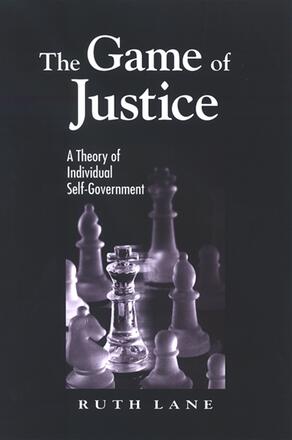
The Game of Justice
A Theory of Individual Self-Government
Alternative formats available from:
Argues in favor of viewing justice as a political contest that everyone has a stake in.
Description
The Game of Justice argues that justice is politics, that politics is something close to ordinary people and not located in an abstract and distant institution known as the State, and that the concept of the game provides a new way to appreciate the possibilities of creating justice. Justice, as a game, is played in a challenging environment that makes serious demands on the participants, in terms of self-knowledge and individual self-government, and also in terms of understanding social behavior. What the term game provides is a radical opening of all established institutions: the status quo is neither absolute nor inevitable, but is the result of past political controversy, a result created by the winners to express their victory. At the same time, the game of justice, like all games, is played over and over again, with winners and losers changing places over time. This serves as encouragement to past losers and provides a cautionary reminder to past winners.
Ruth Lane is Associate Professor of Political Science at American University and the author of Political Science in Theory and Practice: The 'Politics' Model and The Art of Comparative Politics.
Reviews
"Ruth Lane's argument is clear and her style is direct. She succeeds outstandingly well at wending her way through many fraught disciplinary disjunctures … I highly recommend this book to an audience well beyond the usual circuit of readers in contemporary political theory." — Robert Geroux, Perspectives on Politics
"In this … wide-ranging work, Lane proposes conceiving of political society in a game theoretic context … Offering … insightful readings of figures as diverse as Foucault and Wittgenstein, and an excellent chapter on Thoreau, Lane develops the notion of justice as a game played by individual participants in their everyday relationships … Lane counsels that if all human relationships are political, everyone possesses the opportunities and burdens of sovereignty. Self-government becomes central, and each person bears responsibility for the informal power structures generated by everyday relationships." — CHOICE
"Lane argues that all politics is very local: it mostly occurs inside the person. What could be more local than her claim that responsibility ultimately lies with the individual? This is a very significant book, both because of its ambition to unite conceptions of justice with strategy, and because of its success in achieving those ambitions." — Michael C. Munger, author of Analyzing Policy: Choices, Conflicts, and Practices